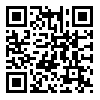BibTeX | RIS | EndNote | Medlars | ProCite | Reference Manager | RefWorks
Send citation to:
URL: http://mededj.ir/article-1-531-en.html


 , Mohammad Javad Hadi Momensaraei
, Mohammad Javad Hadi Momensaraei 

 , Elham Emamgholizadeh Baboli
, Elham Emamgholizadeh Baboli 

 , Behnam Esbakian Bandpey
, Behnam Esbakian Bandpey 

 , Fatemeh Behnam
, Fatemeh Behnam 

 , Zahra Geraili
, Zahra Geraili 

 , Razieh Norouzpour Niazi
, Razieh Norouzpour Niazi 

 , Fatemeh Abbasnia
, Fatemeh Abbasnia 

 , Yousef Mortazavi Derazkola *
, Yousef Mortazavi Derazkola * 


Background and Objective: Coronary artery bypass grafting (CABG) is recognized as the standard treatment for patients with severe coronary artery disease. Postoperative anxiety and pain are common challenges for these patients. This study aims to evaluate the impact of patient education about CABG stages on postoperative anxiety and pain, emphasizing the significance of individualized and interactive teaching methods and the necessity of tailoring educational approaches to cultural contexts, particularly in Iran.
Methods:This quasi-experimental study involved 100 CABG patients randomly assigned to intervention and control groups. The intervention group received face-to-face education, while the control group underwent routine preoperative care. Data were collected using demographic questionnaires, the Spielberger State-Trait Anxiety Inventory (STAI), and the Brief Pain Inventory (BPI). Statistical analyses were conducted using SPSS at a significance level of 0.05.
Findings: Significant differences were observed between groups in mean heart rate (P≤0.001), systolic blood pressure (P≤0.001), diastolic blood pressure (P=0.045), explicit anxiety levels (P≤0.001), and pain intensity (P≤0.001) over time. An independent t-test also revealed a significant difference in hidden anxiety between the groups (P=0.037).
Conclusions: Education enhances patient preparation and awareness, significantly reducing anxiety and pain post-CABG and improving physiological parameters. This intervention is recommended as an effective non-pharmacological strategy for managing anxiety and pain in CABG patients.
Received: 2025/03/31 | Accepted: 2025/06/15 | Published: 2025/04/4
| Rights and permissions | |
 |
This work is licensed under a Creative Commons Attribution-NonCommercial 4.0 International License. |

This work is licensed under a Creative Commons Attribution-NonCommercial (CC BY-NC)

